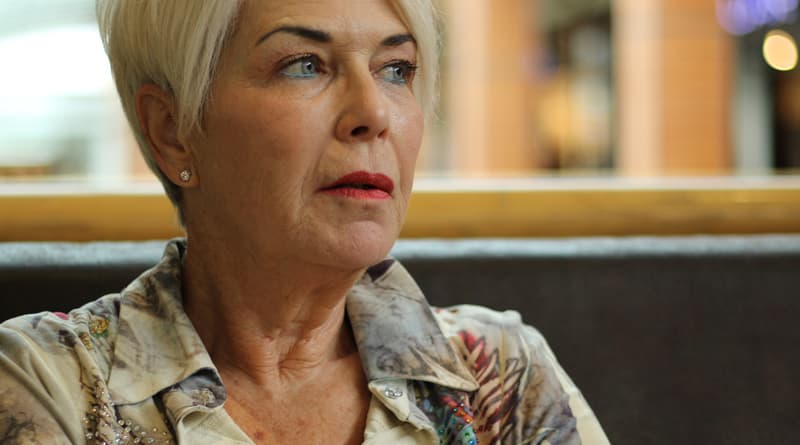
One Individual’s Journey With ADHD
By Camilla Watson
My Journey Towards an ADHD Diagnosis
This is my personal story with ADHD from childhood to present-day adulthood. I am sharing this experience in case other like-minded people go through similar motions in life. I want to create an honest conversation around ADHD and help focus on changing the narrative. It is a reality not just for me but also for 4-5% of Americans diagnosed with it. However, some statistics say that 75% of adults who have ADHD are undiagnosed.
Challenges in Pre-School to College & Beyond
Throughout school, from PreK to College and after, I was easily distracted, zoned out in class, and had trouble with active listening. Information was always coming at me a mile a minute, and I felt like I was on information overload. In addition, I was antsy, felt incapable, under-stimulated, fidgeted, and was often left out or the last one picked in school. My attention span always appeared short-circuited, lacking clear focus and understanding of class subject matters.
The act of sitting still for long periods in a desk chair in a classroom wasn’t even a thought to me.
Making friends was a real struggle and felt like an extraordinary effort with every school chapter. However, I strived always to be liked and feared not being liked by everyone.
Ever since I was little, my listening skills haven’t been strong. Someone can be a few feet away from me, and I zone out entirely. I am uncertain where my mind redirects to where I may miss sections of what someone may have said. I found a preschool report card from the late 1980s. My teacher repeatedly noted I wasn’t good at listening.
Navigating the Education System
Later in my more formative years of school, I felt incapable of what others appeared to excel in with no hesitation and inferior because I couldn’t grasp basic concepts in school. As a result, I felt forever stuck struggling with the same subjects and challenges throughout my education. I was often thinking about the level of expectation of others around me. Even though this expectation isn’t necessarily tangible, I’d continually worry about how I’d measure up to my peers on different projects, exams, and socially. Ever since I can remember, I have always felt things deeply. Others have often viewed me as a highly sensitive person or too emotional. When any size or shape of rejection happens in real-time, my emotional core feels like a stab to the chest with a fight or flight response. I experienced my self-worth and confidence shrink each time. I felt self-doubt frequently. But I, too, thought I had an overwhelming amount of feeling emotions anytime anything happened. I later realized that instead of my feelings regulating as they should, they dysregulate because of a chemical imbalance within my nervous system.
I would be present to learn a math equation during class presented by the teacher, but my brain would be elsewhere. When I was called upon to do the equation myself, I couldn’t recollect how to do it. In addition, I would go in countless times to be tutored. Yet, I would never fully process and comprehend what I had learned. I later found out a large part of this had to do with dyscalculia. This learning difficulty affects an individual’s ability to do basic arithmetic such as addition, subtraction, multiplication, and division. In addition, I learned that part of ADHD is having an Audio Processing Disorder (APD), which makes it challenging to comprehend and understand spoken language. This occurs when the brain cannot interpret, process, or comprehend speech. Those with APD may have difficulty following instructions, filtering out background noises in public places, and recalling information.
Standardized testing in school wasn’t simple for me; they were overwhelming and tedious. I often couldn’t differentiate between right and wrong answers. In addition, exam days would appear; I felt I studied but not for long enough. I would know about half of the exam material and didn’t retain everything I studied. I was often disappointed with my exam results and quickly turned over the returned tests to the page’s blank side, so no one else could see what grade I received. I learned to compensate and manage by studying best with note cards or a study sheet while repeating the material required to know aloud.
I am known for my inquisitive nature, introversion, and creativity. In addition, I am known for my ability to hyperfocus
on tasks and complete projects at the last minute. For example, in 5th grade, each student was assigned a Mayan Culture Project and given an assignment due date. I woke up at 4 AM to hyperfocus on the project and ensure it was completed and still a job well done the day it was due.
I innately enjoyed reading, writing, and spelling. However, I discovered I loved hands-on experiences and experiments. I wanted my left brain to be more involved. I couldn’t jit at my desk and listen for hours. I wanted to learn with excitement, interaction, and genuine interest.
Also, I experienced anxiety in different forms: generalized anxiety, social anxiety, performance 1anxiety, and text anxiety throughout my time in school. I’d twirl my hair during classes, feeling stir-crazy, unstimulated, and anxious. Fidgeting was my coping mechanism to get through moments when I had difficulty focusing on the present, real-time moments. I specifically remember one teacher who thought it was rude to do. Still, I wasn’t intentionally trying to be offensive or disrespectful. I didn’t know what I was doing wrong, but I knew I was intimidated and unfocused. Therefore, I couldn’t vocalize what I was feeling. I could only express my feelings by quietly sitting, accompanied by fidgety hands, hoping I wouldn’t be called on and humiliated in class. I often had feelings of uneasiness and trepidation. I dreaded going to school- I experienced social anxiety most days and felt invisible. By the end of the school day, I felt like I was carrying a heavy burden on my shoulders that I couldn’t even put into actual words; anxiety had taken over. I felt overwhelmed and wanted to be left alone after returning home from school.
Life Changes and Increased Anxiety
When I was 11 years old, my family moved 10 minutes away. Although the distance from my family’s old house to the new house was short, it meant changing school systems and starting all over again. I had extreme anxiety about the move and all the changes it would encompass and felt it exacerbated my anxiety. I often felt uneasy in my new surroundings; I never felt a warm blanket of embrace and comfort. I struggled with following directions in class, and I felt inept and worried about what impression my peers would make. It was difficult to focus as chronic boredom lurked, and I was a fidgety clock-watcher. Yet, I had a quest for excitement and thrill. Even though I couldn’t fold my hands and keep them together in one place, I discovered the value and need for structure in my life. While others expected lunch and recess, I steered clear of going to recess. Instead, I reluctantly ate lunch quietly with a few other girls in my class.
At one point, I asked to get tested to find out if something was wrong with me and get the help I needed to address my problems. I did testing for this reason in 7th grade with a school educator. A few days later, my results returned; I was told I was slightly under the percentile required to be in the bracket to be assisted. I received an answer, but I wasn’t given any solutions. Consequently, my problems continued. I was unsure how to solve the mysterious problem I had. I continued doing what I was familiar with: going in for help or staying after class to answer questions. I often heard “Camilla just isn’t getting it,” echoed by my math teachers. The words I heard weren’t encouraging, and I continued to feel incapable and frustrated, unsure how to solve the mysterious problem I felt I had with myself.
During college, I continued zoning out in classes and continually felt like I had to relearn the information already taught me. It felt like a vicious cycle. I didn’t feel empowered; I felt frustrated and lacked intelligence and effort in the classroom.
Seeking Answers
I started seeing a psychiatrist for other life concerns about three years ago. After talking with me after a period of appointments and understanding my personality traits through sharing my feelings and stories, she suggested I may have ADHD. At this moment, she also mentioned that her office offers the QB test. A QB test is a diagnostic screening tool that provides objective information to aid the assessment of ADD/ADHD. The test uses age and gender-matched comparisons to assess a child’s ability to concentrate, move, and impulsivity. The QB Test was founded in Sweden in 2012.
After hearing about the QB Test, I decided to take it for the first time. I made my appointment for a Saturday, where my day was open and distraction-free. I got to my psychiatrist’s office and was taken to a separate room. The office receptionist explained how the QB Test worked and the directions to me, and it would take 20 minutes. The QB test would include different colored shapes on the screen; I needed to focus and recognize patterns when I saw them on the computer and clicked a red button. It was essential to my psychiatrist’s office that I was distraction-free and with the door closed while taking the test.
I was anxious and wondered if I would get through the test. Twenty minutes was a long time alone in an unfamiliar room, with no phone and a test. So I asked myself, “How would I do without looking at my phone for 20 minutes?” And I could tell then my anxiety was present.
Relief & Acceptance of an ADHD Diagnosis
To me, the QB test was overwhelming. However, I was relieved and felt somewhat fulfilled when it was done because I completed something challenging that took uninterrupted focus. Once done, I asked the office reception at my psychiatrist’s office when I would get the QB test results, and she then explained I would receive them at my next psychiatry appointment. But unfortunately, my next appointment was still about a month out, so I waited until then. At my appointment, my doctor shared the results with me. Scattered red dots were where I made human errors, whereas green dots on the test results showed correct responses. My QB test results showed that my attention and impulsivity are greater than those of typical brains. Hence, pointing at ADHD diagnosis for me.
When I learned about what my QB test results showed, I was in shock and almost disbelief. I felt sad and ashamed. But I also thought, “So this is potentially why my whole life I’ve had to try harder at different things than those around me or my peers.” I shook my head in dismay but also felt a sense of relief and reassurance. Learning I have ADHD wasn’t easy, but I’ve learned to accept it and make positive strides to help manage my ADHD.
After that, I decided with my psychiatrist to start taking an off-brand of Adderall to help with the symptoms I experience with ADHD. Adderall has its pluses and minuses; fortunately, I notice a difference when I take it. After some time on Adderall and going to appointments and the talk therapy portion of the appointment, I took another QB test. Again, it showed that my results for inattention decreased compared with the results from the previous QB test. So therefore, Adderall was making a significant and noteworthy difference in my life.
On the plus side, I am creative and inventive. I continually have a myriad of thoughts and ideas. I am typically the feedback or ideas person when it comes down to any work or club I am associated with. I have many interests I appreciate and love. Still, it’s challenging to say which one sparks my interest level the most. Since 4th grade, my penmanship has become part of my trademark. Over time, my handwriting evolved to be more like calligraphy. Some say it is a talent of mine. When I was six years old, a relative taught me how to spin a basketball with just one finger. I was hyper-focused on it, and ever since, I’ve been able to spin a basketball on one finger. I’ve never forgotten how to after all these years. I am hyper-sensitive, empathetic, and intuitive. I am a natural connector of people, persistent, a visual learner, and an entrepreneurial spirit. My short-term memory is quick-lived, and my long-term memory castle is sharp and ever-present. I can easily see and remember details and recount them later. I am a sponge for many facts and information; my long-term memory equates to a dolphin’s memory abilities.
I think of ADHD as a magical superpower more than a deficit.
Moving Forward
Overall, I feel my ADHD journey has been an eye-opening rollercoaster ride. I’ve learned to use forward-thinking and focus on the future to handle my ADHD personally, speaking, and in the workplace. I feel a sense of relief and calm now that I am aware of my ADHD diagnosis. I also recognize ADHD is not a lack of intelligence but is considered a different way of thinking, processing information, and doing tasks. It is also reassuring to learn ADHD is not entirely isolated. There are communities and individuals worldwide that have ADHD (or are undiagnosed or figuring out if they do). They, too, are going through the motions of ADHD. It’s comforting to learn other individuals have ADHD.
From my perspective, ADHD means constantly trying to find what interests us, avoiding boredom, seeking jobs that bring fulfillment, recognizing we’re prone to making mistakes (ADHD + being human), and surrounding ourselves with people who genuinely support us. A diagnosis is possible, assistance is possible, ADHD communities are available, and we’re not alone.

My name is Camilla Watson. I learned I have ADHD about three years ago. I am interested in writing and sharing experiences and stories that matter related to neurodiversity. In addition, I am also a Different Brains intern.




